Jing Qian co-founded the Center for China Analysis (CCA) at the Asia Society Policy Institute alongside the Hon. Dr. Kevin Rudd. He serves as the managing director of CCA, leading the center’s strategy, research, and policy work on China. His own research focuses on China’s elite politics and its impact on China’s domestic and foreign policy, particularly regarding U.S.-China relations. He co-leads the Decoding Chinese Politics project and is a senior fellow at the Munk School of Global Affairs and Public Policy at the University of Toronto.
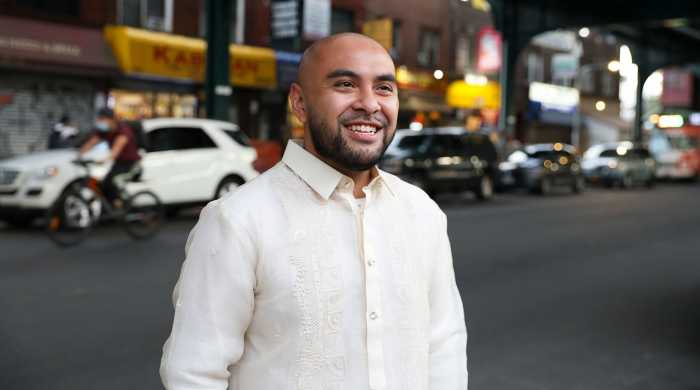
Steven Raga
Assembly Member, New York State Assembly

Steven Raga serves as the Assembly Member for District 30, representing Woodside, Elmhurst, Maspeth, Middle Village, Jackson Heights, and Astoria. He brings over two decades of public service, including roles such as executive director of Woodside on the Move and senior strategist at AARP. Raga has also contributed as a board member for various organizations and currently sits on the New York State Advisory Committee for the U.S. Federal Commission on Civil Rights, appointed under President Obama.
If you could give your younger-self advice, what would it be?
Reflecting on what advice I would give to my younger self, as a Filipino American, I’d probably say: continue to embrace your heritage and the diverse perspectives it brings. Build strong connections within your community and beyond, as these relationships will support and enrich you. Lastly, always believe in your potential, even when challenges arise, and use them as stepping stones to grow and succeed.
Do you have any event/movie/music suggestions for our readers to check out in celebration of AAPI Heritage Month?
In celebration of AAPI Heritage Month, I would recommend checking out and attending the Chinatown book launch party and book signing for the new book “Corky Lee’s Asian America.” The event is going to take place on Saturday, May 4, 2024, at 4:00 p.m. at the Manny Cantor Center to showcase the late great Corky Lee’s 50 years of photographic justice, capturing iconic moments in Asian American history.
How has your heritage shaped the person you are today?
Raised in Queens as a Filipino American by a single mother, I was profoundly shaped by our borough’s diversity and vibrant spirit. This environment fostered my deep commitment to cultural empathy and adaptability. Inspired by my earlier experiences, I became actively involved in student and community organizing within the Filipino community. These efforts have fueled my dedication to public service and community engagement.
What can New York policymakers do to support the AAPI-community in the short-term? In the long-term?
Advocate for reflective AAPI representation in all spaces, practice proactive relationship building with community leaders, and fight to fully fund our AAPI non-profit organizations!

Jenifer Rajkumar
Assembly Member, New York State Assembly

Assembly Member Jenifer Rajkumar is a lawyer, professor, and government leader who made history as the first South Asian-American woman ever to be elected to a state office in New York. In 2023 she passed historic legislation designating Diwali as a New York City public school holiday. This year, she passed the SMOKEOUT Act in the State budget, authorizing New York City to immediately close all the illegal smoke shops plaguing New York City. Assembly Member Rajkumar has also passed milestone legislation granting protections to domestic workers, establishing New York State’s first-ever Asian American & Pacific Island (AAPI) Commission, and supporting crime victims. She is a graduate of Stanford Law School and the University of Pennsylvania.
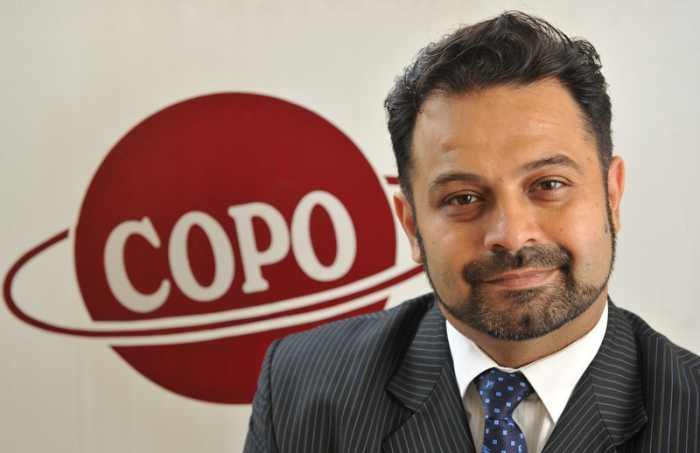
Mohammad Razvi
CEO, Council Of Peoples Organization (COPO)

Mohammad Razvi is the executive director and founder of Council of Peoples Organization (COPO), based in Brooklyn, New York. COPO is an advocacy team whose influence reaches beyond its Brooklyn base to the wider South Asian and Muslim Arab community. Additionally, Mr. Razvi is a co-founder of Iftar Dinners for Borough Presidents as well as is a co-founder of We Are All Brooklyn (WAAB) coalition, MCN and many other organizations.
If you could give your younger-self advice, what would it be?
As someone who finished college as an adult, I would tell my younger self to finish college when I was younger and not give that up. Experience is vital but education is also vital.
Do you have any event/movie/music suggestions for our readers to check out in celebration of AAPI Heritage Month?
COPO runs the country’s biggest Muslim Youth Career Day in collaboration with the FBI. This Career Youth Fair has a predominantly South Asian and Muslim attendance. It takes place on May 18th from 10 A.M. to 3 P.M. We are also organizing Pakistan Independence day on Coney Island Ave. and Ave. H on August 18, 2024.
How has your heritage shaped the person you are today?
As a South Asian first generation immigrant, I often would share my home with all the immigrant “uncles” that came over from South Asia with nothing. From growing up in a Pakistani immigrant community, to helping my father with his small businesses – I partook in helping all the immigrants who came with nothing. I contributed by connecting them with resources (e.g. food or employment etc.) which eventually became COPO’s core foundation.
What can New York policymakers do to support the AAPI-community in the short-term? In the long-term?
Halal is not the same as Kosher. I spent seven years convincing and educating policymakers about the many different cultural and social aspects in our communities, including the food we consume. In many of our discussions, the policymakers pushed how Kosher was Halal enough and can be distributed to our community via our Food Drives and other resources. I believe it’s vital for policymakers to understand the cultural differences that make us uniquely us.
Therese R. Rodriguez
CEO, Apicha Community Health Center
Therese R. Rodriguez is the chief executive officer of Apicha Community Health Center, an organization focused on increasing access to healthcare. The organization has extensive experience working with Asians and Pacific Islanders, Latinos, African Americans and other people of color, specifically with members of the LGBTQ+ and HIV/AIDS+ communities. Therese Rodriguez has been a leader of Apicha since 1997. Born and raised in the Philippines, Rodriguez is a longtime advocate of civil rights and increased access to health and social services for Asian and Pacific Islanders.
Faiza Saeed
Presiding Partner, Cravath, Swaine & Moore
Faiza J. Saeed is Cravath’s presiding partner. She advises public companies, boards of directors and special committees in connection with mergers and acquisitions, corporate governance and crisis management, including takeover defense and proxy contests. Ms. Saeed serves as a trustee of The Paley Center, New York‑Presbyterian and the William Nelson Cromwell Foundation, and on the boards of directors of the Partnership for New York City and The Paley Foundation. She is a member of The Council on Foreign Relations and The Economic Club of New York. Ms. Saeed has extensive deal experience across many industry sectors, including significant depth in media/tech and biotech.
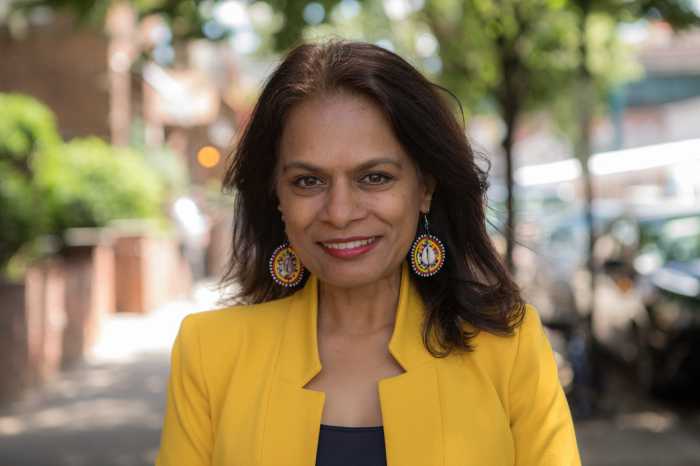
Annetta Seecharran
Executive Director, Chhaya Community Development Corporation

For the last 25 years, Annetta Seecharran has been a force in building out the South Asian/Indo-Caribbean social justice movement, leading two organizations, South Asian Youth Action and Chhaya, from nascent stages to becoming strong and sustainable players in the NYC non-profit landscape. At Chhaya, while quadrupling the organization’s programs and establishing an economic justice portfolio, Annetta brought an advocacy and organizing lens to all its work. She is a sought after advisor and sits on several boards.
If you could give your younger-self advice, what would it be?
My work has been a labor of love. Yet, at every turn, we were breaking down barriers and forging new paths for our community. This required everything I had. I would advise my younger self to make space for me and be a better self-advocate. Being a fighter for my community comes easily, but advocating for myself feels foreign. As a result, I have been underpaid and overworked for much of my career.
Do you have any event/movie/music suggestions for our readers to check out in celebration of AAPI Heritage Month?
AAPI Heritage Month is a great opportunity to support our small AAPI businesses. I recommend self-guided food tours of some of our city’s hidden culinary treasures in Little Guyana (Richmond Hill) and Jackson Heights, Queens.
How has your heritage shaped the person you are today?
As an Indo-Caribbean of Guyanese origin, I am family and community oriented. My family and community are my anchors, and this deep connection has fueled my passion and commitment for the work I have done for the last 25 years. I’m also well aware of my privilege and feel compelled to use my access to expand opportunities for my community.
What can New York policymakers do to support the AAPI-community in the short-term? In the long-term?
Make the time to understand our community. Start with collecting better data on us. You will quickly learn that we are not a monolith. We all hail from many parts of the world and we are deeply woven into New York City’s economic, social and cultural fabric. We are New York City – like anyone else!
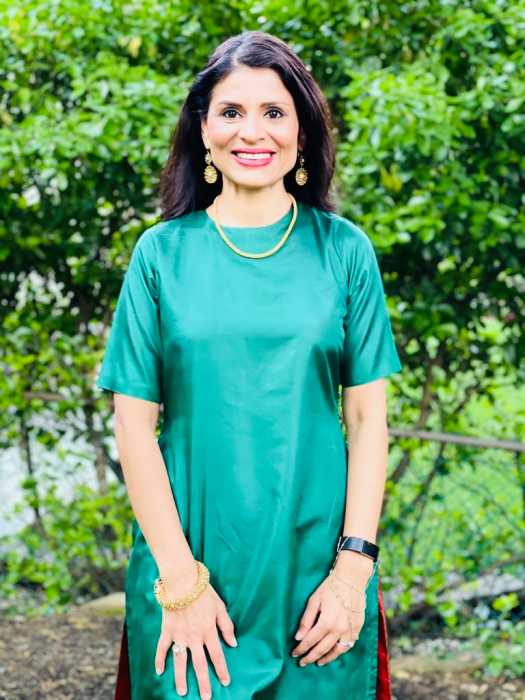
Anu Sehgal
Founder and CEO, The Culture Tree

Anu Sehgal is children’s author and founder of The Culture Tree, a cultural literacy and language education company that focuses on South Asia. She has won several awards for the work she has done in cultural literacy. Anu believes awareness of one’s heritage, culture and language is key for children to become self-aware and confident individuals. She holds an MBA from Yale University and has worked in the corporate sector for almost 15 years.
If you could give your younger-self advice, what would it be?
That following your true passion can be extremely fulfilling and exciting. When people notice the passion and drive, further opportunities arise all the time. I wish I had followed my passion for cultural education earlier in my life.
Do you have any event/movie/music suggestions for our readers to check out in celebration of AAPI Heritage Month?
Yes!! My AAPI Children’s Literary Festival!
How has your heritage shaped the person you are today?
I grew up in India in a secular household with a Muslim mother and Hindu father, in which kindness and hard work were the focus. My heritage has played a key role in shaping me. I am a proud Indian and want others to know more about this beautiful, secular, diverse country better. I write lost stories from India, which my grandparents told me and also focus on language and cultural literacy.
What can New York policymakers do to support the AAPI-community in the short-term? In the long-term?
First, provide the AAPI community to celebrate their heritage and culture (more cultural funding). Second, provide AAPI kids the opportunity to showcase their heritage and culture and connect back with their heritage in a more organic way (more opportunities). Third, build more sections at libraries to reflect AAPI community, cultures and languages.
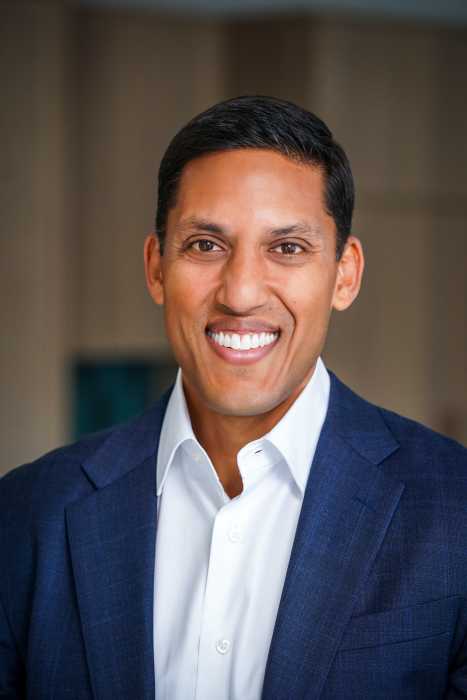
Rajiv J. Shah
President, Rockefeller Foundation

Dr. Rajiv J. Shah serves as president of the Rockefeller Foundation, a global institution with a mission to promote the well-being of humanity around the world. With a century-long track record of leveraging science, technology, and innovation, The Foundation is pioneering new ways to enable individuals, families, and communities to flourish. Dr. Shah is a graduate of the University of Michigan, the University of Pennsylvania School of Medicine, and the Wharton School. He has received several honorary degrees, the Secretary of State’s Distinguished Service Award, and the US Global Leadership Award. He is married to Shivam Mallick Shah and they have three children.
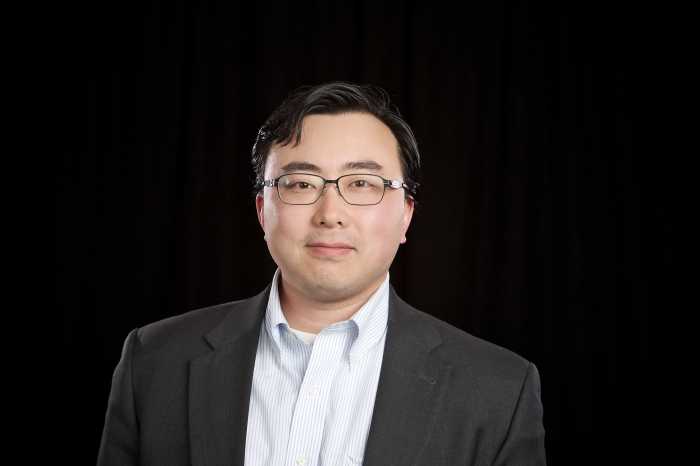
Kenneth Shieh
Chief Strategy Officer, JCCA

Kenneth Shieh is the chief strategy officer of JCCA, which provides high-quality mental health, education, and child welfare services to more than 17,000 children and their families. Ken works with organizational leadership to improve cross-agency coordination and integrating programmatic, financial, and data analytic functions, to guide JCCA towards becoming a data-driven organization. Ken comes to JCCA from the Charles B. Wang Community Health Center (formerly the Chinatown Health Clinic) where he also served as CSO.
If you could give your younger-self advice, what would it be?
Identify your competencies and work to develop them; over time these skills can become your passion. Prioritize being passionate about what you are doing, rather than seeking or following what you believe is your passion now.
Do you have any event/movie/music suggestions for our readers to check out in celebration of AAPI Heritage Month?
I recently started reading “Interior Chinatown” by Charles Yu. The author’s take on stereotypes, and the roles we are assigned based on external expectations, is quite interesting.
How has your heritage shaped the person you are today?
Growing up in an environment with a different heritage than the one I was born into has made me aware of the importance of considering cultural context. This has been especially insightful when speaking with the clients and families I have had the opportunity to work with in the health care and social services arena.
What can New York policymakers do to support the AAPI-community in the short-term? In the long-term?
Policy makers in NY need to recognize that, while the AAPI population has grown significantly, funding for services in our communities has not grown at the same rate.





